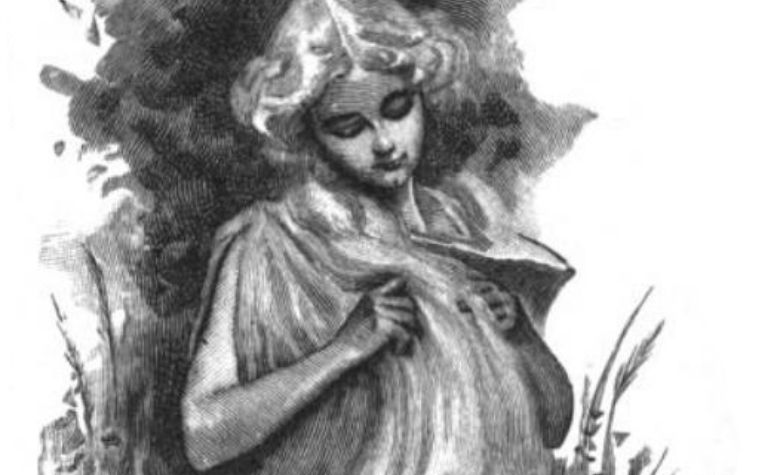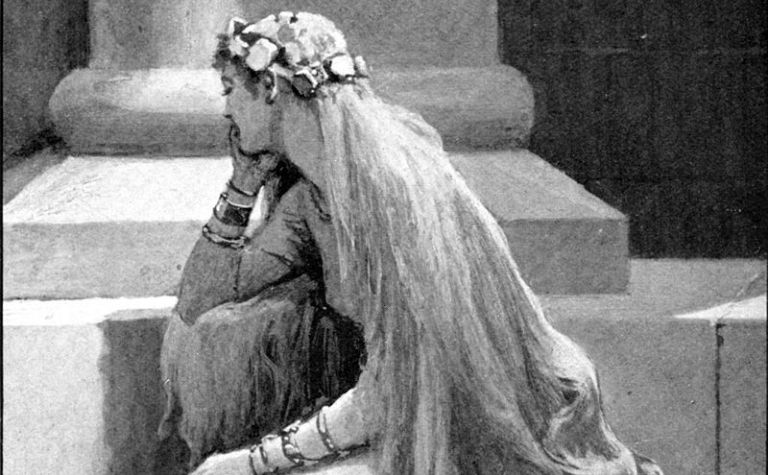Thor is one of the most well-known and well-liked characters in Norse mythology due in part to his depiction in Marvel comic books and Marvel movies.
Many people are aware of Thor’s love interests in the Marvel Cinematic Universe (MCU), but they are curious about his relationships and family as they are described in Norse mythology.
The goddess Sif is Thor’s wife in Norse mythology. Not much is known about Sif because Norse literature doesn’t describe her character or abilities in detail.
Sif was likely the goddess of harvest and fertility. Her children are Magni and Modi.
What Does Norse Mythology Say About Thor and Sif’s Relationship? What Was Sif the Goddess Of? Who Were Thor’s Children?
Keep reading to learn the answers to these questions and others.
Also, see Did the Vikings Wear Thor’s Hammer? to learn more.

What Does Norse Mythology Say About Thor and Sif’s Relationship?
Not a lot is known about Sif and Thor’s relationship. The Norse literature that mentions it is vague and leaves readers wanting more.
For example, the description “husband of Sif” is mentioned in Skaldic and Eddic poetry, but these texts don’t elaborate on the relationships between these Norse deities.
Scholars suggest that there are two ways to view Sif and Thor’s relationship. The first is the mysterious personal perspective and the other is their mythological parallels.
As the goddess of the harvest, Sif’s abilities align with Thor’s because he was the god of many weather events so the pair are compatible in that way.
Thor was seemingly protective of her yet there are implications that Sif may have had extramarital affairs.
Potential Infidelities
Plenty of stories depict Thor as a devoted husband. The time Loki cut Sif’s hair and invoked Thor’s wrath is just one tale of the Thunder God’s protective nature.
Some accounts don’t include Sif’s name, though.
One story in the Poetic Edda has Loki proclaim that he was Sif’s lover.
Another tale has Odin and Thor arguing, and The All-father also says that Sif was with someone else while his son, Thor, was off from Asgard adventuring.
When Sif declares her innocence, Loki responds,
You would be alone if that were so, wary and fierce toward a man; I know one, I’m pretty sure, who cuckolded Thor, and that was the sly Loki (Harbardsljod, stanza 48)
There are no direct accounts of Sif’s alleged infidelities in Norse mythology.
Perfect Complement
Sif’s and Thor’s powers complement each other. Thor’s powers over weather could help grow crops easier, and he could make harvests more plentiful.
Both Sif and Thor were protector gods too. Thor granted protection and safe passage at sea while Sif gave safety and security to Norse families under her purview.
People could invoke either to help solve complex problems.
Also, see Did the Vikings Actually Believe in Thor? to learn more.

What Was Sif the Goddess Of?
There’s no concrete answer about what Sif presided over in her role as a goddess among the Aesir gods of Norse mythology.
Unlike the Greek goddess Athena, there isn’t a lot of information about Sif, so people can only infer certain facts about her. Granted, those making inferences are educated Norse scholars.
Nevertheless, much about Sif is conjecture.
Many people believe that Sif is the goddess of harvest or fertility. Given that she’s Thor’s wife, who himself provides plentiful harvests, the assumption makes sense to scholars.
Sif’s golden hair supposedly serves as a clue to her dominion, as it’s similar to Demeter’s, the Greek harvest goddess.
What can be known about Sif from Norse literature implies that she was a goddess associated with the change of seasons.
The color of Sif’s eyes and her long, golden hair may indicate that she was the goddess of seasonal change and wheat specifically.
Sif’s connection to wheat, harvest, and the seasons makes sense to scholars when considering her connection to Thor, who was a weather god.
Thor’s domain included thunder, lightning, wind, and rain — some of which are weather conditions needed to ensure healthy crops.
Goddess of Prophecy and Solutions
Sif possessed the power of prophecy, as well. She could foresee things that others could not.
The so-called “Harvest Goddess” was a renowned problem-solver, too, and provided solutions to complicated issues.
Scandinavians baked multigrain to invoke Sif’s aid and praise her.
Sif also aided people who were unable to find peace in their lives.
Goddess of Family and Passion
The Harvest Goddess is associated with a plethora of other themes. Sif was also synonymous with family and caregiving.
Her symbol was the rowan tree, which represented protection, wisdom, and courage. [1]
Sif also represents the arts, summer, passion, the sun, and kinship.
Also, see Norse Thor vs. Marvel Thor: What’s the Difference? to learn more.
Who Were Thor’s Children?
Sif and Thor had a blended family. Both the Goddess of the Harvest and the God of Thunder had children from previous unions. Sif had Ullr from her former marriage to Aurvandil.
Thor had Magni from his relationship with a giantess named Jarnsaxa, and together, Thor and Sif had Thrud and Modi.
He also helped raise Sif’s son, Ullr, though he wasn’t Ullr’s father.
Ullr
Ullr is the God of Sports — specifically skiing and hunting with bows. There’s a lot unknown about Ullr in the annuls of Norse literature.
Ullr was able to win any game he played. He was also the ruler of Asgard when the Vanir usurped it.
Magni and Modi
Magni is the God of Strength. He’s so strong that he could lift the giant Hrungnir as a child. Magni and his brother Modi are supposedly fated to be two of the gods who survive Ragnarok.
Modi is one of the much lesser-known members of the Norse pantheon. Modi’s name means “courage” and he and Magni will inherit Mjolnir after Ragnarok.
Thrud
Thrud (or Trud) is Sif and Thor’s only daughter, and her name means “strength” in old Norse. There is a story that involves a black elf named Alviss that wanted to marry her. [2]
Thrud instead wanted Alviss’ immense knowledge and asked him questions until the sun came up, and the light turned him to stone.
Conclusion
Despite being Thor’s wife, Sif is primarily a mystery. That said, she is still an important figure in Norse Mythology.
